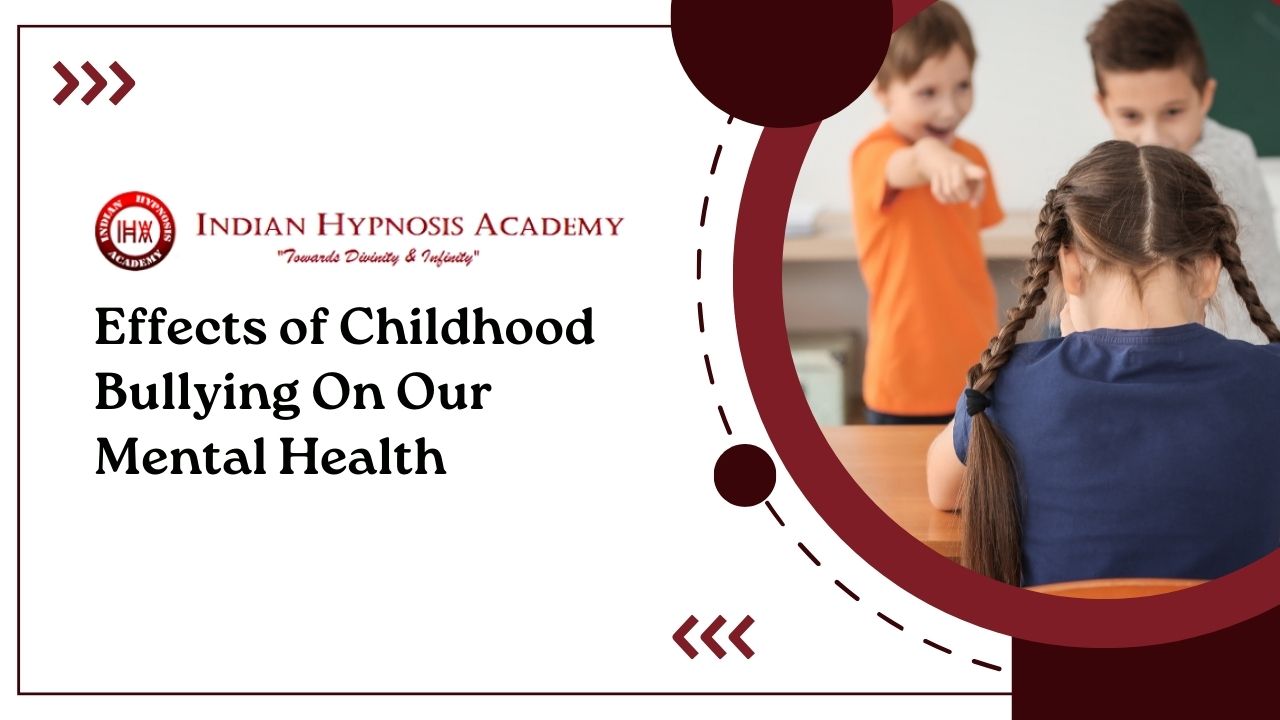Introduction to Childhood Bullying
Bullying is a harsh reality that many children face, leaving scars that can last a lifetime. The effects of childhood bullying on mental health are profound and far-reaching. Let’s dive into the different types of bullying, their impacts, how to cope with the aftermath, and most importantly, how we can work together to prevent it from happening in the first place. Join me as we explore this critical issue and its implications on our well-being.
Types of Bullying and Their Impact
Bullying comes in various forms, each leaving a distinct mark on its victims. Physical bullying involves physical harm or coercion, leading to both immediate and long-term consequences. Emotional bullying targets one’s self-esteem and mental well-being through insults, rumors, or exclusion. Cyberbullying takes place online, making it relentless and invasive.
The impact of these different types of bullying can be profound. Victims may experience increased anxiety, depression, and low self-esteem. They might struggle with trust issues and have difficulties forming relationships later in life. In severe cases, the trauma from childhood bullying can manifest as post-traumatic stress disorder (PTSD) or other mental health disorders.
Understanding the various forms of bullying is crucial in addressing its effects on mental health. By recognizing the signs early on and providing support to those affected, we can work towards creating a safer environment for all children to thrive in their social interactions without fear or intimidation.
Long-Term Effects on Mental Health
Childhood bullying can have lasting effects on mental health that extend well into adulthood. Victims of bullying may experience increased levels of anxiety, depression, and low self-esteem as they grow older. The trauma from being bullied during formative years can manifest in various ways, such as difficulty forming trusting relationships or feeling a constant sense of vulnerability.
Moreover, the long-term impact of childhood bullying can lead to a higher risk of developing psychological disorders like PTSD or even suicidal thoughts. These deep-rooted emotional scars can affect every aspect of an individual’s life, from their personal relationships to their professional success.
It is crucial to acknowledge the profound and enduring consequences that childhood bullying can have on one’s mental well-being. Seeking support from mental health professionals and engaging in therapy are essential steps towards healing these wounds inflicted during youth. By addressing these issues head-on, individuals can work towards reclaiming their sense of self-worth and resilience.
Coping Mechanisms for Victims of Childhood Bullying
Experiencing childhood bullying can leave lasting emotional scars that may impact mental health. Coping with the effects of such trauma is crucial for healing and moving forward positively in life.
One effective coping mechanism is seeking support from trusted friends, family members, or a therapist who can provide a safe space to express feelings and work through past experiences. Engaging in self-care activities like exercise, meditation, or hobbies can help reduce stress and improve overall well-being.
Practicing mindfulness techniques such as grounding exercises or deep breathing can assist in managing anxiety and negative thoughts associated with bullying. Setting boundaries with individuals who trigger painful memories can also be empowering for victims of childhood bullying.
It’s important for survivors to remember that they are not alone and that it’s okay to ask for help when needed. Building resilience through therapy, support groups, or online communities can aid in the healing process and promote inner strength.
Another helpful coping mechanism is reframing negative thoughts and beliefs about oneself. Childhood bullying can often lead to low self-esteem and self-doubt. By challenging negative self-talk and replacing it with more positive and realistic thoughts, individuals can start to rebuild their self-worth.
Additionally, finding healthy ways to process and express emotions, such as through journaling or creative outlets, can be beneficial. It’s also important for victims of childhood bullying to practice forgiveness towards themselves and others involved in the bullying.
Lastly, practicing assertiveness skills can help individuals set boundaries, stand up for themselves, and advocate for their needs. This can be especially helpful when facing triggers or potential bullies in the future.
It’s essential to remember that healing from childhood bullying takes time and patience. It’s crucial to prioritize self-care, seek support from others, and practice healthy coping strategies when dealing with past trauma. With these tools in place, victims of childhood bullying can learn to manage their emotions and move forward confidently in life.
Seeking Professional Help
Seeking professional help is a crucial step in dealing with the lasting effects of childhood bullying. It’s normal to feel overwhelmed or unsure about reaching out for support, but remember that you deserve to prioritize your mental well-being.
Therapists and counselors can provide a safe space for you to process your emotions, develop coping strategies, and build resilience. They are trained to help individuals navigate through trauma and heal from past experiences.
Through therapy, you can explore the impact bullying has had on your self-esteem, relationships, and overall mental health. By addressing these issues with a professional, you can work towards healing and creating a more positive mindset.
Remember that seeking help is not a sign of weakness; it takes strength to acknowledge when we need support. You don’t have to face the aftermath of childhood bullying alone – there are professionals ready to guide you towards healing and growth.
Preventing Childhood Bullying: Role of Parents and Schools
Preventing childhood bullying requires a joint effort from both parents and schools. Parents play a crucial role in instilling values of empathy and kindness in their children. By fostering open communication and teaching respect towards others, parents can help prevent their child from becoming a bully or being bullied.
Schools also have a vital role to play in creating a safe and inclusive environment for all students. Implementing anti-bullying programs, educating students on the importance of acceptance, and enforcing strict policies against bullying are key steps schools can take to prevent such behavior.
Collaboration between parents and schools is essential in addressing bullying effectively. It’s important for parents to be actively involved in their child’s school life, communicate with teachers about any concerns, and work together to promote positive social interactions among students.
By working hand-in-hand, parents and schools can create a united front against childhood bullying, helping to foster a culture of respect, understanding, and support within the community.
Addressing the Issue: Steps Parents, Teachers, and Communities Can Take
Addressing the issue of childhood bullying requires a collaborative effort from parents, teachers, and communities. Parents can start by fostering open communication with their children to create a safe space for them to share their experiences. It’s important for parents to educate themselves about the signs of bullying and intervene promptly if they suspect their child is being bullied.
Teachers play a crucial role in creating a positive and inclusive school environment. They can implement anti-bullying programs, promote empathy among students, and address any instances of bullying behavior immediately. Additionally, teachers should encourage bystanders to speak up against bullying and support victims.
Communities can also take proactive steps to address childhood bullying by organizing awareness campaigns, workshops, and events that promote kindness and respect. By working together as a collective unit, parents, teachers, and communities can create a united front against bullying that fosters empathy and compassion among children.
Breaking the Cycle: Teaching Empathy and Kindness to Children
Teaching empathy and kindness to children is crucial in breaking the cycle of bullying. Children learn by example, so it’s important for adults to model compassion and understanding in their interactions. Encouraging children to consider how their words and actions impact others can foster a sense of empathy from an early age.
One effective way to instill empathy is through storytelling. By sharing narratives that highlight different perspectives and emotions, children can develop a deeper understanding of others’ feelings. Activities like role-playing scenarios or volunteering in the community can also help kids practice kindness and compassion in real-life situations.
Empathy isn’t just about feeling sorry for someone; it’s about truly putting yourself in another person’s shoes. Teaching children to actively listen, validate feelings, and offer support can cultivate genuine connections with their peers. By teaching empathy and kindness early on, we equip children with essential skills to build positive relationships and create a more inclusive society.
Conclusion
Childhood bullying can have long-lasting effects on our mental health, shaping the way we view ourselves and others. It is crucial to address this issue with empathy, understanding, and action. By recognizing the different types of bullying and their impact, we can better support victims in coping with their experiences.
Seeking professional help is essential for those who have been affected by childhood bullying. Therapists and counselors can provide the necessary tools and support to heal from past traumas. Additionally, parents and schools play a vital role in preventing bullying through education, communication, and fostering a culture of kindness.
By addressing the issue head-on and taking proactive steps to prevent bullying, we can create a safer environment for children to grow up in. Teaching empathy and kindness from an early age is key to breaking the cycle of abuse and building a more compassionate society.
Let us work together as parents, teachers, communities – as human beings – to combat childhood bullying and ensure that every child feels safe, valued, and loved. Together, we can make a difference in the lives of those who have experienced the harmful effects of bullying on their mental health.




